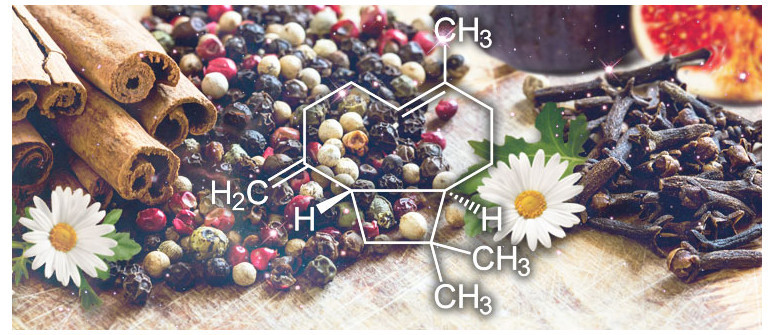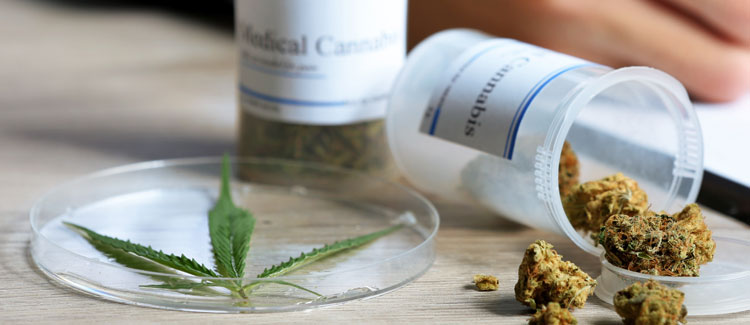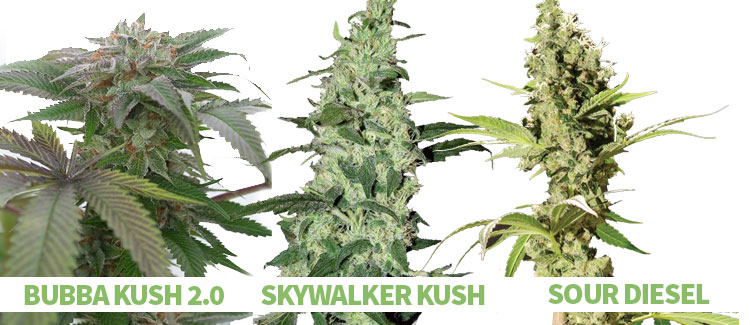Terpene profile: β-caryophyllene

β-caryophyllene is a terpene produced in the trichomes of cannabis plants. This terpene lends toward spicy and peppery tastes, and has been well-studied for its medicinal properties.
Cannabis plants produce a wide variety of secondary plant compounds that make them extremely interesting to humans. One of the lesser known compounds is β-caryophyllene, a spicy and pungent terpene that adds some serious kick to various cannabis cultivars.
Terpenes play a deeper role within cannabis than just providing scent and taste, for they can influence and enhance the effects of cannabinoids such as CBD and THC. Many terpenes have also displayed massive medicinal potential when studied, suggesting a future role within certain domains of medicine.
One such terpene is known as β-caryophyllene, a molecule that gives black pepper and cloves their distinct spiciness. It's also found within hops, rosemary, and basil.
WHAT ARE THE EFFECTS AND POSSIBLE MEDICAL BENEFITS OF β-CARYOPHYLLENE?

β-caryophyllene has been found to synergize with several cannabinoids, and in doing so may enhance some of their medicinal effects. A 2011 paper published in the British Journal of Pharmacology discusses the phenomenon of the “entourage effect”—how a variety of terpenes and cannabinoids may augment the effects of one another.[1]
The paper states that β-caryophyllene may enhance the gastric cytoprotective (protection against gastric mucosal injury) effects of THC. The two molecules may also work together in the treatment of pruritus (severe itching of the skin). β-caryophyllene has also been potentiated to work in concert with CBD in the treatment of addiction.
Numerous therapeutic uses of β-caryophyllene have been discovered, with the molecule displaying analgesic, antibacterial, antidepressant, anti-inflammatory, antiproliferative, antioxidant, anxiolytic, and neuroprotective actions.
THE SCIENCE BEHIND β-CARYOPHYLLENE
One of the most interesting pieces of research surrounding β-caryophyllene is in regards to its apparent ability to increase longevity. A 2014 paper published in the journal Experimental Gerontology discusses longevity-influencing effects of the terpene in Caenorhabditis elegans, or roundworm.[2]
The authors of the paper mention the antioxidant, anti-inflammatory, and anticancer effects of the terpene. They go on to state that β-caryophyllene may influence lifespan extension by modulating genes that regulate oxidative stress, xenobiotic detoxification, and longevity.
β-caryophyllene has also demonstrated antioxidative effects, meaning it can inhibit oxidation, a phenomenon associated with DNA damage and chronic diseases including cancer, diabetes, cardiovascular diseases, and rheumatoid arthritis.[3]
The terpene is also showing promise in the field of cancer. A 2007 paper published in the Journal of Pharmacy and Pharmacology declared it may enhance the effects of the chemotherapy drug paclitaxel.[4] The report states that the terpene facilitates the passage of the drug through the cell membrane.
β-CARYOPHYLLENE-RICH CANNABIS STRAINS

Numerous strains are rich in the terpene β-caryophyllene, a trait that gives them a striking taste that lingers on the tongue. Here are a few that are concentrated with this spicy terpene:
Bubba Kush 2.0: This strain is one for the indica-lovers, featuring 90–100% indica genetics. She provides a potent high that results in sleepy sensations and couch-lock. The high level of β-caryophyllene contributes toward a flavor profile consisting of floral, peppery, and spicy notes. Bubba Kush 2.0 stems from parent strains Afghani and Pre-‘98 Bubba Kush.
Skywalker Kush: This strain is so loaded with trichomes that its flowers look like diamonds. This plant grows to a tall height, offers a good yield, and produces a happy, uplifting, euphoric, and sleepy high. The high THC level makes it a good candidate for extract creation.
Sour Diesel: This sativa-dominant strain was created by crossbreeding Northern Lights, Diesel, Shiva, and Hawaiian. A THC content of 19% results in a fast-acting high that triggers a relaxed and focused mindset. The flowers leave a taste of diesel, herbs, and sourness on the tongue when smoked.
- ^ NCBI, Taming THC: potential cannabis synergy and phytocannabinoid-terpenoid entourage effects, retrieved November-20-2018
Link - ^ NCBI, Beta-caryophyllene modulates expression of stress response genes and mediates longevity in Caenorhabditis elegans., retrieved November-20-2018
Link - ^ NCBI, The antioxidant effect of β-caryophyllene protects rat liver from carbon tetrachloride-induced fibrosis by inhibiting hepatic stellate cell activation., retrieved November-20-2018
Link - ^ NCBI, Potentiating effect of beta-caryophyllene on anticancer activity of alpha-humulene, isocaryophyllene and paclitaxel., retrieved November-20-2018
Link




